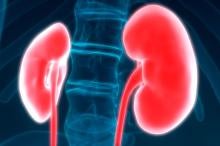Using data systems to conduct health research in the Caribbean: challenges during the COVID-19 pandemic
We aimed to assess how control measures during the coronavirus disease 2019 (COVID-19) pandemic affected the metabolic health of people with noncommunicable diseases when severe restrictions on movement and safety concerns prevented the use of traditional methods of health data collection. To identify study participants, we attempted to use hospital laboratory databases in Jamaica, Barbados, and Trinidad and Tobago.















